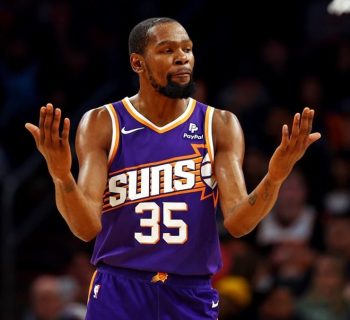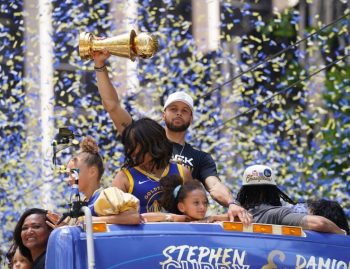NBA
NBA PM: D-League Almost One-to-One

When the D-League first got underway in 2001, there were only eight teams in the entire league. It started as a place for players who weren’t quite ready for the fast, physical play of the NBA. But within a couple of years, a handful of those first franchises were purchased by private owners and moved around the country. In 2006, the Los Angeles Lakers became the first organization to purchase their own D-League team, starting the slow process of turning the league into a full-blown minor league for the NBA.
Now, with a number of recent announcements from NBA teams, the D-League will be closer than ever to becoming a true NBA minor league. Over the course of the last month, the Milwaukee Bucks and Memphis Grizzlies both have announced plans for expansion D-League teams, while the Orlando Magic, Atlanta Hawks and Minnesota Timberwolves have plans to move current D-League teams closer to their home locations.
With the expansion, there will be 25 teams in the D-League by the 2017-2018 season, which means there are more teams with one-to-one D-League affiliates than there ever have been, and it seems like only a matter of time before 30 D-League teams line up precisely with 30 NBA teams.
Even in waiting for those last five organizations to buy teams (the Denver Nuggets, Los Angeles Clippers, New Orleans Pelicans, Portland Trail Blazers and Washington Wizards all are without exclusive D-League affiliates), there are more than enough franchises now working with complete control over their D-League affiliates to essentially consider this a fully-functioning minor league.
Those teams that don’t have any affiliation with the D-League are going to have it rough while they figure out when and/or how to make their own expansion franchises happen. Currently, teams can call up any unsigned D-League player no matter what team he currently plays for, however, those teams don’t have as many options if they have a player they want to send down for some seasoning. Since rival NBA franchises own and operate these D-League organizations now, they aren’t trying to do anybody else any favors by giving their blue chips a place to marinate. Gone are the days of multiple teams sharing franchises.
Considering how challenging it will be for teams without D-League franchises to use the system, it seems inevitable that those other five organizations will fall in line. For example, according to Rich Kaipust of the Omaha World Herald, the city of Omaha is bringing in a new NBL team called the Omaha Chargers as a way of proving they can support a D-League team. Denver and New Orleans would be prime candidates for a team in that location, but it goes to show there are major American cities interested in the prospect of hosting one of these remaining potential expansion teams.
Whatever happens in terms of further expansion, the D-League has become a place for hungry young players to make their mark and eventually find their way to the NBA. A third of current players have experience in the D-League, with several of those being undrafted rookies that worked their way up the ranks until they were given their opportunities. With easier call-ups and send-downs, those numbers should only improve.
Already we’re seeing Summer League stars and young players waived in training camp get another opportunity with organizations through D-League affiliations. The pay isn’t anywhere near as good as it would be in Europe or China, but with direct, easy connections to NBA teams, the pay cut in the D-League comes with a potentially more direct path to the NBA.
As the D-League continues its transformation into a true minor league for the NBA, it could change the way teams draft, particularly in the second round. With a full roster, certain teams could draft longer-term projects and riskier bets in the second round with an eye toward just storing them in the D-League until they were ready to prove that they belong at a higher level. As it stands, the second round is rife with international prospects unknown beyond the minds of most smart basketball people this side of Fran Fraschilla and Chad Ford. That could change with a true minor league.
One problem, though, is that these teams aren’t particularly profitable. Average attendance as of the 2013-2014 season was under 3,000 fans per game, and anyone that has watched Derrick Jones’ Northern Arizona highlights ahead of the dunk contest knows that there aren’t a lot of rear ends in seats at these games.
A one-to-one system could help build fandom and raise attendance, as fans of NBA teams could build allegiance to the minor league teams, as well. When there were three and four teams assigned to a single affiliate, it was hard for fans of NBA teams to get too attached to any players on the roster. With D-League teams located close to the actual fan bases of the NBA teams, improvement seems not only possible, but inevitable.
Next season, five-sixths of the league will have a D-League affiliate, and soon those last five teams will join in. A full minor league is well on its way and is just about complete.













